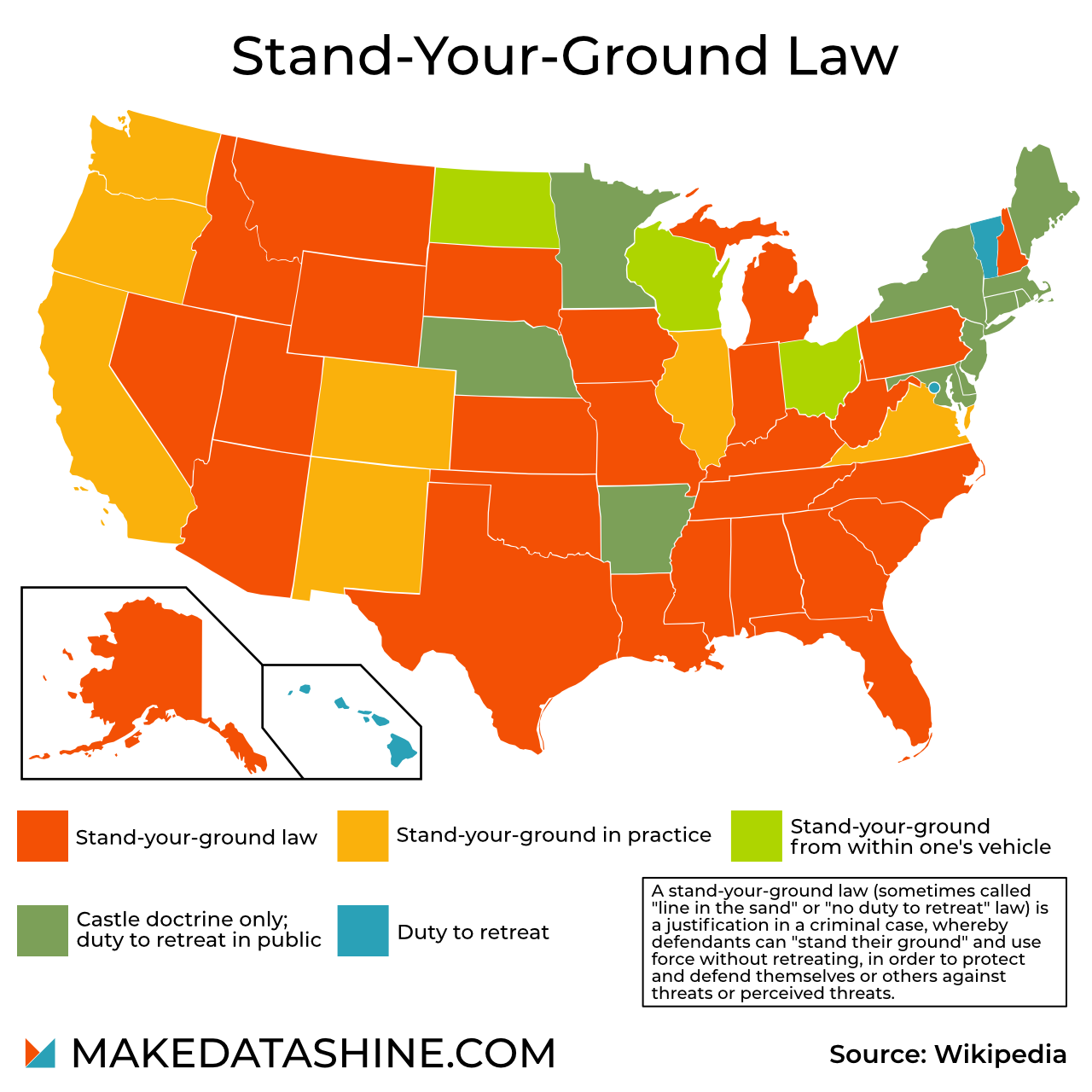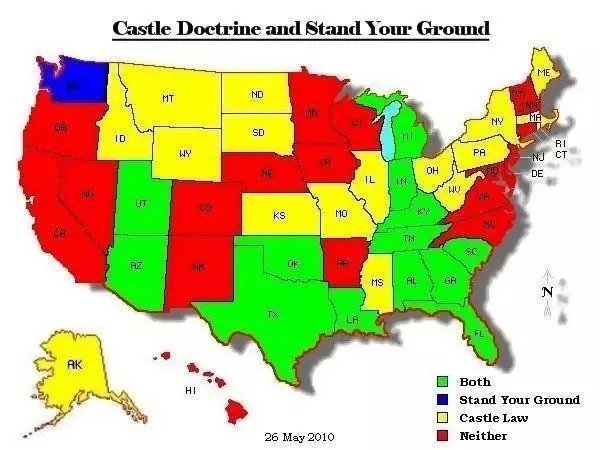Does Utah Have Stand Your Ground Law?

Yes, Utah has a Stand Your Ground law, often referred to as a “justifiable homicide” or “self-defense” law. Utah’s Stand Your Ground law is codified in Utah Code Annotated § 76-2-404. This law permits individuals to use deadly force in self-defense or defense of others without a duty to retreat or avoid confrontation when they reasonably believe such force is necessary to prevent imminent death, serious bodily harm, or a forcible felony.

Key Points:

No Duty to Retreat: Utah’s Stand Your Ground law eliminates the common law duty to retreat before using deadly force in self-defense. This means that individuals are not required to attempt to flee or avoid a confrontation before using lethal force if they reasonably believe they are in imminent danger.
Reasonable Belief of Imminent Danger: The law requires individuals to have a reasonable belief that deadly force is necessary to prevent imminent death, serious bodily harm, or a forcible felony. This determination is based on the totality of the circumstances surrounding the incident, including the actions and words of the aggressor, any prior interactions between the parties, and any other relevant factors.
Defense of Others: The Stand Your Ground law extends the right to use deadly force in self-defense to the defense of others. Individuals may use deadly force to protect another person if they reasonably believe that person is in imminent danger of death, serious bodily harm, or a forcible felony.
Exceptions and Limitations:
While Utah’s Stand Your Ground law provides broad protection for individuals using deadly force in self-defense, there are a few exceptions and limitations:
Provocation: If an individual provokes the use of deadly force against themselves, they may not be able to use the Stand Your Ground law as a defense. Provocation includes using unlawful force or engaging in conduct that a reasonable person would know is likely to cause another person to use deadly force against them.
Initial Aggressor: Individuals who are the initial aggressors in a confrontation cannot claim self-defense unless they have withdrawn from the conflict and communicated their intent to cease the confrontation.
Lawful Duty to Retreat: In some specific situations, individuals may have a legal duty to retreat before using deadly force. For example, police officers or security guards may have a duty to retreat if they can safely do so without endangering themselves or others.
Debate and Controversy:
Stand Your Ground laws are often controversial and have been the subject of much debate. Proponents argue that these laws are necessary to protect individuals’ right to self-defense and prevent them from being forced to retreat in dangerous situations. Opponents argue that these laws make it too easy for individuals to use deadly force and can lead to unnecessary deaths, particularly in situations involving arguments or altercations that could have been de-escalated.
Conclusion:
Utah’s Stand Your Ground law permits individuals to use deadly force in self-defense or defense of others without a duty to retreat. However, there are certain exceptions and limitations to this law, including instances of provocation, being the initial aggressor, and having a lawful duty to retreat. The debate surrounding Stand Your Ground laws highlights the complex balance between an individual’s right to self-defense and the potential for excessive or unjustified use of deadly force.






